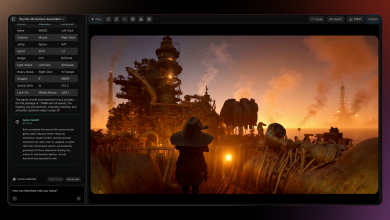Introduction to the Metaverse
The metaverse is a collective virtual shared space, created by the convergence of virtually enhanced physical reality and physically persistent virtual space.
The term was coined in Neal Stephenson’s 1992 science fiction novel “Snow Crash”. The concept has been explored in other works of fiction, such as Ready Player One (2011), The Diamond Age (1995), and Snow Crash (1992).
In Snow Crash, the Metaverse is depicted as a large shared space with numerous user interfaces to access it. Users can become citizens by buying a plot of land within the Metaverse and uploading their own content to it.
How does Artificial Intelligence play a role in the Metaverse
The role of AI in the Metaverse is to be the virtual assistant for all human beings in a virtual world. It can help with anything from navigating and mapping your surroundings, to provide you with information about certain locations, people, or objects.
AI has a major role in the Metaverse as it will be able to provide assistance for humans who are unable to take care of themselves due to disabilities or other reasons.
The Importance of Big Data for Achieving The Metaverse
keywords: big data, data mining, digital footprint
With the data collected, it is possible to create a virtual world that is tailored to each individual.
One of the most important questions in VR is how to track and map people’s movements. The answer is big data. It can be used to track a person’s movements and create a digital footprint of them with accuracy.
How can we use the Metaverse to Change our Lives?
The Metaverse is the next generation of the internet. It is a 3D virtual world where we can create, experience and share our ideas. The Metaverse will be a vast network of interconnected virtual spaces, created by combining 3D graphics with blockchain technology. The blockchain will be used to store information about each space, as well as its content and users.
What is Web 3.0?
Web 3.0 is a term used to describe the next generation of the internet. It is a combination of three things:
1) A decentralized web (as opposed to centralized)
2) A web that is more secure and private (as opposed to public)
3) An internet that uses machine learning and artificial intelligence to provide better services for users.
What are the Key Components of Web 3.0?
Web 3.0, also known as the semantic web, is an extension of the current web. In this new web, information is shared and understood by machines as well as humans. Web 3.0 is not just about adding more features to the current internet or website.
It’s about changing the way we think about data and how we use it for everyday life through artificial intelligence and machine learning. Web 3.0 is made up of three key components: Semantic Web, Web Services and Web Applications
How does it Affect Content Marketing and Creation?
Content marketing is often considered to be a major part of the marketing strategy for many companies. With the help of AI writers, content marketers can now create more content at a faster pace.
AI writers can take care of all the mundane tasks that are associated with content marketing such as keyword research and social media posts. This will allow marketers to focus on higher value tasks such as creating compelling content and building relationships with influencers.
How AR & VR Will Improve the User Experience in the metaverse
Augmented reality and virtual reality are making the user experience more immersive. Augmented reality and virtual reality are making the user experience more immersive. The future of the metaverse is coming closer to us every day, as augmented and virtual realities become more popular.
Virtual Reality (VR) is a computer-generated simulation of a three-dimensional image or environment that can be interacted with in a seemingly real or physical way through special equipment such as headsets, gloves, or bodysuits.
Augmented Reality (AR) is an interactive experience of a real-world environment where the objects that reside in the real world are “augmented” by computer-generated perceptual information such as sound, video, graphics or GPS data.
What are the Benefits of Meta Content For Brands and Digital Marketers?
Meta content is a new type of content that is not created for a particular medium. It is designed to be used across multiple channels and devices.
The benefits of meta content are:
– Improved brand awareness
– Increased customer engagement
– Enhanced customer experience
– Reduced cost of content production.




